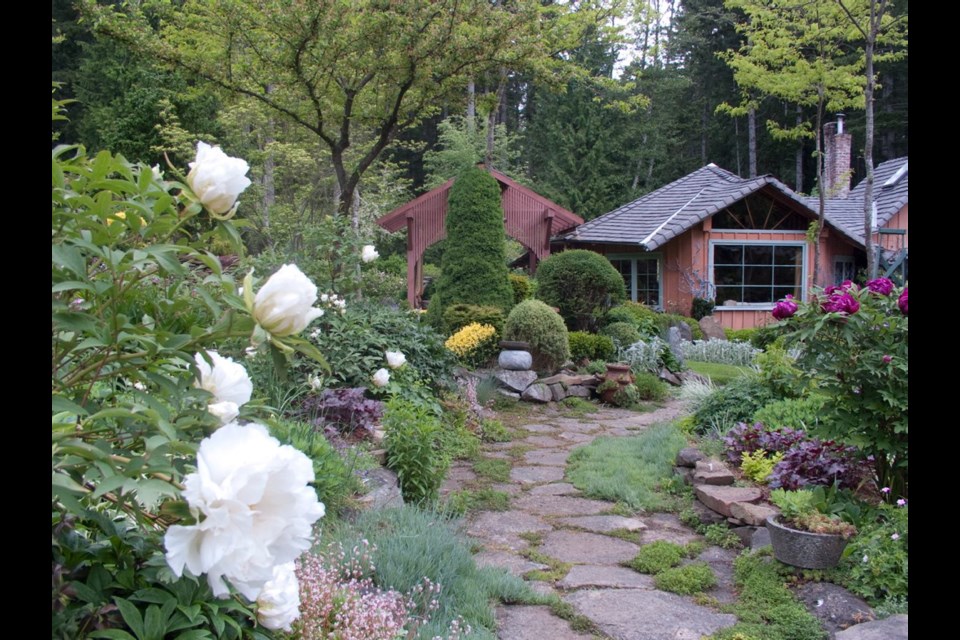Gardens, and those who tend them, offer hope for the world’s biggest problems, environmental, economic or social, says a Denman Island green-thumb philosopher.
Des Kennedy, thinker, writer, gardener and recent author of Heart and Soil, said he sees great things for humankind in our attempts at coaxing plants from the soil.
“Gardens and gardeners are a strong component of addressing the big issues that need to be addressed in our society,” said Kennedy, 68. “It’s something that is going to become increasingly obvious in the years ahead of us,” he said in a telephone interview from his Denman home.
His new book Heart and Soil is a collection of essays and reflections on gardens, gardeners and gardening.
Above all, he said, the book is meant as a reflection on the inherent joy that is a natural element of all gardens. It’s best explained in the book’s subtitle The Revolutionary Good of Gardens.
Kennedy grew up mostly in Toronto, where he landed with his family at the age of nine, when they emigrated from England. When he left home, he spent eight years, mostly in the northeastern U.S. in a rigorous, disciplined program of mortification of the flesh and spirit learning to be a Roman Catholic priest and monk.
When he left the religious orders, he said he found himself in Vancouver, where he worked as a teacher and social worker before he landed on Denman in 1972 with Sandy, now his wife of 44 years.
With the exception of a few brief sojourns, they have remained there ever since, growing most of their own food. They eat some animal protein, including fish and eggs, and they buy things such as rice and coffee. But most of what they eat comes from the garden.
There’s a kind circle to Kennedy’s Denman garden. His parents, he said, cared little for travel or modern entertainment, such as movies. But they were devoted to their gardens, growing vegetables and ornamentals around the family home.
“And that was in Toronto, where it wasn’t easy,” Kennedy said. “Spring didn’t really get started until May and then you were getting frosts by the end of September.”
He and Sandy work an 11-acre property. It’s part natural woodland, with Douglas fir and red cedar, part vegetable garden and part ornamental flowers.
Kennedy said he writes most mornings and works in the garden in the afternoons. But there’s never a real separation between the two.
“I get a lot of my best writing done when I’m not writing,” he said. “I’ll be out there digging in the potato beds, thinking over what I wrote in the morning.”
“It’s a nice, meditative way of doing things,” he said.
He said he has watched his garden coax new natural activity on his property, sending the butterfly numbers soaring and providing a frequent stop for hummingbirds who don’t even require coaxing with sugar-water feeders.
The whole endeavour is neither about full control nor about wild abandon.
“Some of the natural elements are lost once you put in a garden, but then a lot of other things start to occur,” Kennedy said.
Kennedy explains his Denman life is about appreciating all elements of the natural world.
He wants to live life as an agent working the soil and tending plants, always in connection with those “natural forces” that will sometimes resist even the best gardener’s attempts at control.
He doesn’t like to call it a “spiritual pursuit,” although it has spiritual and psychological dimensions. Nor is it all physical labour, although Kennedy agrees much of it is so physical it can even qualify as “mortification of the flesh.”
“It’s full of madness and full of frustration,” he said. “It’s a kind of a mad and joyful ride.”
“It is spiritual and it is physical and it is not one opposed to the other,” he said.
“That’s the glory of gardening and other lifestyles that involve a direct and immediate interaction with the natural forces around us,” Kennedy said.
Heart and Soil, The Revolutionary Good of Gardens is published by Harbour Publishing.



